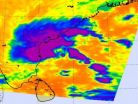Cognitively-impaired human research subjects need better protection
Study finds wide variability in ethics board practices
2010-12-08
(Press-News.org) (Garrison, NY) Practices for protecting human research subjects with Alzheimer's disease and other conditions that make them incapable of giving informed consent are widely variable and in need of more concrete ethical and legal guidance, according to a study in IRB: Ethics & Human Research.
The findings are significant for several reasons. First of all, the authors write, many countries have made research on dementia a national health priority and launched clinical trials that involve people who are, or are likely to become, cognitively impaired. These trials increasingly involve invasive interventions which may pose more than minimal risk. And yet throughout the world, regulations and guidelines provide little direction to ethics review committees about how best to protect these people – and about who can make decisions on their behalf.
The new study, part of a larger Canadian research program called Substitute Consent for Research in Elderly Subjects (SCORES), involved telephone interviews with 46 research ethics board chairs in Canada, assessing their attitudes toward enrolling in clinical trials older adults without decision-making capacity and asking what safeguards they would require. Twenty respondents said they had reviewed research protocols involving such persons during the past year and all allowed them to participate in research under certain conditions, such as minimal risks or consent from a substitute decision-maker.
More than half of the ethics board chairs said that they required additional protections for this population, such as assessing decisional capacity. "Yet the fact that some REBs [research ethics boards] did not require these additional safeguards is cause for concern," wrote the researchers. Four allowed older adults without decision-making capacity to participate in minimal risk studies that could benefit them personally, even when there was no one legally authorized to provide substitute consent. The authors raised concerns about this practice, though they acknowledged that the legal requirement regarding substitute consent for research is unclear in the provinces where those REBs are located.
Given the variability in research protections for older adults with cognitive impairment, the researchers "recommend that policy-makers and stakeholders consider developing appropriate protective measures for this population."
###
The lead author is Gina Bravo, professor in the Department of Community Health Sciences, at the University of Sherbrook, and Research Centre on Aging, University Institute of Geriatrics of Sherbrooke in Quebec. Coauthors are from University Institute of Geriatrics of Sherbrooke, Dalhousie Law School in Halifax, and University of Toronto.
END
ELSE PRESS RELEASES FROM THIS DATE:
2010-12-08
CHAMPAIGN, Ill. – The lame-duck Congress may be the last chance for the current Democratic majority to slip through legislation legalizing online gambling, a move that could have dire consequences for communities and the economy, a leading national gambling critic warns.
Although much of the talk on Capitol Hill revolves around Bush-era tax cuts and reducing the deficit, University of Illinois business professor John W. Kindt says don't be surprised if a bill legalizing online gambling is floated by outgoing House Democrats under the auspices of revenue generation.
"The ...
2010-12-08
COLUMBUS, Ohio – Many U.S. restaurants may be ignoring a desire by American consumers to dine at environmentally friendly restaurants, according to a small exploratory study.
Researchers found that more than 8 out of 10 restaurant patrons surveyed in Columbus said they would be willing to pay more to dine at "green" restaurants. More than 7 out of 10 said it was good for restaurants to protect the environment.
The only problem is that very few restaurants market themselves as "green" or environmentally friendly, said Jay Kandampully, co-author of the study and professor ...
2010-12-08
CINCINNATI—Helicopter emergency medical services can be a life saver for patients needing immediate care. But, according to a University of Cincinnati study, the process of activating them often delays treatment beyond recommended times.
The study, published online ahead of print in Annals of Emergency Medicine, was led by assistant professor Jason McMullan, MD. In a multicenter, retrospective chart review, McMullan found that a majority of STEMI heart attack patients transferred by a hospital-based helicopter emergency medical service (HEMS) in 2007 did not receive treatment ...
2010-12-08
AUDIO:
This is a recording of a Red-tailed hawk made by Pamela Rasmussen in Maryland and now downloadable from the AVoCet database.
Click here for more information.
EAST LANSING, Mich. — A growing online library of bird sounds, photos and information offers a new resource for backyard birders and seasoned ornithologists alike.
The Avian Vocalizations Center at Michigan State University, or AVoCet,offers free downloads of bird sounds from around the world. It also features ...
2010-12-08
Flying insects' altitude control mechanisms are the focus of research being conducted in a Caltech laboratory under an Air Force Office of Scientific Research grant that may lead to technology that controls altitude in a variety of aircraft for the Air Force.
"This work investigates sensory-motor feedback mechanisms in the insect brain that could inspire new approaches to flight stabilization and navigation in future insect-sized vehicles for the military," said Dr. Willard Larkin, AFOSR program manager who's supporting the work of lead researcher, Dr. Andrew Straw of ...
2010-12-08
In an effort to pinpoint potential triggers leading to inflammatory responses that eventually contribute to depression, researchers are taking a close look at the immune system of people living in today's cleaner modern society.
Rates of depression in younger people have steadily grown to outnumber rates of depression in the older populations and researchers think it may be because of a loss of healthy bacteria.
In an article published in the December issue of Archives of General Psychiatry, Emory neuroscientist Charles Raison, MD, and colleagues say there is mounting ...
2010-12-08
ORLANDO — A pioneering clinical trial is testing the effectiveness in leukemia of a small molecule that shuts down MDM2, a protein that can disable the well-known tumor suppressor p53.
Michael Andreeff, M.D., Ph.D., professor of Medicine and chief of Molecular Hematology and Therapy in the Department of Leukemia at The University of Texas MD Anderson Cancer Center, presented preliminary results of this ongoing Phase I study at the 52nd Annual Meeting of the American Society of Hematology. The clinical trial is under way at MD Anderson and five other sites in the United ...
2010-12-08
New Rochelle, NY, December 7, 2010—NASA-funded research has uncovered a new life form on Earth, a microorganism that can not only survive but can thrive and reproduce by metabolizing arsenic, a chemical that is highly toxic for most other earthly organisms. This finding will revolutionize the field of astrobiology—the study of the origins, evolution, distribution, and future of life in the universe. Astrobiology, a peer-reviewed journal from Mary Ann Liebert, Inc.(www.liebertpub.com), has been the defining journal in this exciting area of study for the last decade. Table ...
2010-12-08
System 94B has not been classified as a tropical depression, but NASA satellite data has shown that it is creating heavy rainfall near India's southeastern coast. A second NASA satellite revealed that strong wind shear is continuing to push convection to the northwest of System 94B's center of circulation.
The Tropical Rainfall Measuring Mission (TRMM) satellite viewed an area of thunderstorms associated with System 94B near the east coast of India in the Bay of Bengal on December 7 at 0123 UTC. Data from TRMM's Precipitation Radar (PR) and Microwave Imager (TMI) showed ...
2010-12-08
GREENBELT, Md. -- A new NASA computer modeling effort has found that additional growth of plants and trees in a world with doubled atmospheric carbon dioxide levels would create a new negative feedback – a cooling effect – in the Earth's climate system that could work to reduce future global warming.
The cooling effect would be -0.3 degrees Celsius (C) (-0.5 Fahrenheit (F)) globally and -0.6 degrees C (-1.1 F) over land, compared to simulations where the feedback was not included, said Lahouari Bounoua, of Goddard Space Flight Center, Greenbelt, Md. Bounoua is lead author ...
LAST 30 PRESS RELEASES:
[Press-News.org] Cognitively-impaired human research subjects need better protection
Study finds wide variability in ethics board practices





